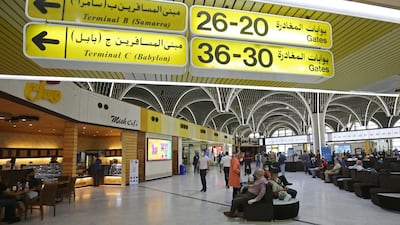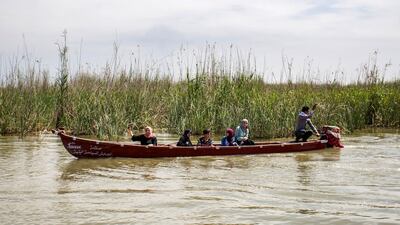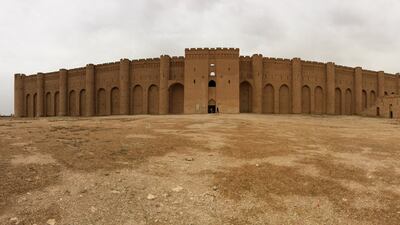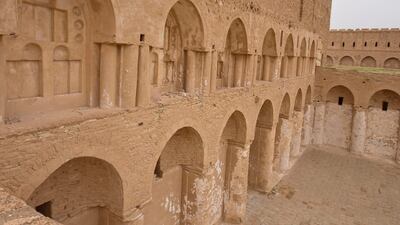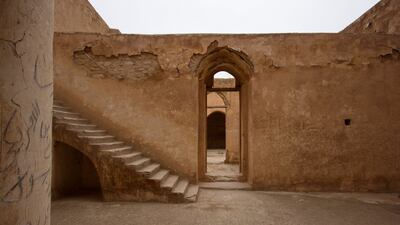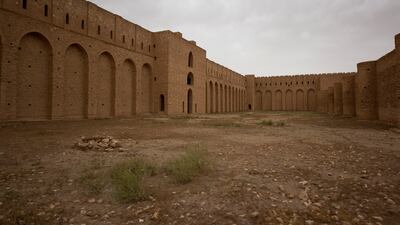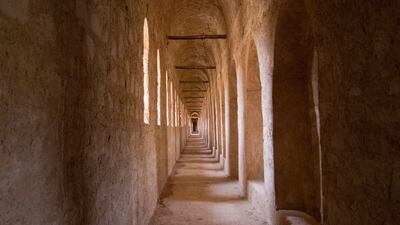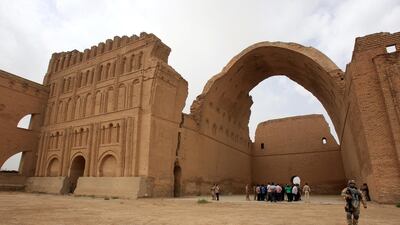Visitors from 36 countries can now get visa approval on arrival in Iraq, in a major shake-up of policy.
The move is an attempt to spur the ailing economy, encourage foreign investment and create jobs.
Until now, applying for an Iraqi visa had been a difficult process. This delayed critical investment and reconstruction projects.
"The visa news is very positive in my view. There will be calls for reciprocity, but anything that reduces barriers to the flow of people and capital to Iraq is an unambiguously positive development for the country", said Grant Felgenhauer, managing partner at Euphrates Advisors, an investment firm that focuses on companies listed on the Iraq Stock Exchange.
Which countries do new Iraqi visa rules apply to?
Among the countries exempted are permanent members of the UN Security Council – the US, UK, France, Russia and China, the government said late on Monday.
The exemption also covers more than two dozen EU states, including Germany, Italy, the Netherlands, Denmark, Belgium, Ireland, Austria, Finland and the Czech Republic.
Citizens from Japan, South Korea, Canada, Australia, New Zealand and Switzerland are also included.
The decision came into force on March 15, officials said.
Iraq has struggled to court foreign investors since the 2003 US-led invasion that toppled Saddam Hussein's regime.
Before then, the country's economy was already stagnant following decades of war, UN-imposed sanctions and negligence.
But red tape, corruption, delays in issuing visas and thorny residency regulations have also been major impediments.
Kick starting interest
Particularly important for Iraq is to develop an economy less dependent on oil.
Analysts spoken to by The National hope the new visa rules could spark interest in a number of different sectors, beyond oil and gas.
"One goal of this visa is to encourage individuals to come to Iraq to aid in the economic growth of the nation. An area that only brings in about 3 per cent of revenues into the country is tourism," says Dean Mikkelsen, a risk consultant who advises companies on doing business in Iraq.
"Outside of the Kurdistan region, tourism has not been encouraged or promoted abroad", he says.
Mr Mikkelsen believes that the new visa reforms could boost reconstruction efforts — major reconstruction work across the country, including vital services, has in the past been delayed by slow visa approval.
But Mr Mikkelsen warns that "questions remain as to whether this new visa will allow work to be done in Iraq".
He notes that the Kurdish Region of Iraq has long allowed visa approval at the airport of arrival, in contrast to the Federal Government system, which requires applicants to visit consulates, fill out many forms, and endure a long wait.
"Outside of the energy industry, construction is the second largest employer within the nation and has been growing since 2003. If the visa allows for work to be done, it could allow for consultants to be able to easily enter Iraq and potentially aid in restarting stalled projects throughout the whole country," he says.
A welcome change
After driving ISIS militants from vast part of northern and western Iraq, the country has been desperate to attract foreign investment to rebuild areas demolished by the three-year war.
In early 2018, Iraq appealed for around $88.2 billion at an international donors summit in Kuwait during which some countries pledged around $30 billion in loans and investment. But there has not been much progress since then.
Projects that have suffered include Iraq's first large-scale seawater desalination plant near Basra, which stumbled amid corruption allegations and problems of foreign worker access.
The struggling electricity sector has also been hampered, a sector in part dependent on oil and gas processing for thermal power.
"Many of the multinational joint ventures involved in energy or construction work on a rotational basis for their expatriate staff and this new visa allows for a single entry for 60-days at a cost of $75 per entry," says Mr Mikkelsen, adding that this cost was "not expensive and can also add to revenues needed by the government."
"With the current Covid-19 quarantines in home nations, this would allow for longer rotations and may be advantageous to the multinational corporations and joint ventures operating in Iraq," he says.
This could be importing for keeping the country's oil sector operating smoothly amid uncertain global markets.
Prior to the announcement, travellers wishing to visit Iraq were advised by consultancies and niche travel firms to allow two weeks to a month for visa approvals. Mr Mikkelsen says multiple entry employment visa approval could often take "months".
This wait could often derail travel plans and cause missed flights.
"Overall, the visa represents hopefully a new opportunity for people interested in working and visiting Iraq, though many obstacles remain. It is a good first step to encourage people through the door," Mr Mikkelsen says.
